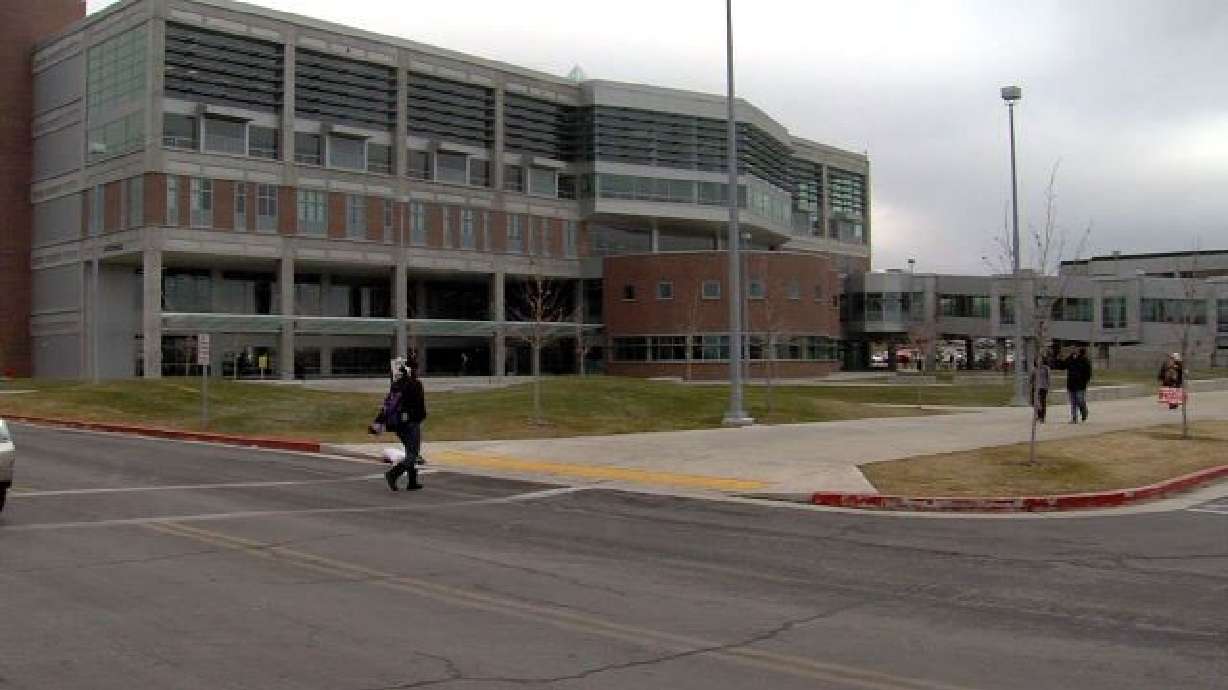Estimated read time: 5-6 minutes
This archived news story is available only for your personal, non-commercial use. Information in the story may be outdated or superseded by additional information. Reading or replaying the story in its archived form does not constitute a republication of the story.
OREM — A former Utah Valley University professor has filed a wrongful termination lawsuit against the school after he was investigated for allegations of gender discrimination in the classroom and retaliating against the students who reported him to the Title IX Office.
Kemal Makasci, the former assistant professor who filed the suit, said over two semesters between early 2015 and late 2016 a group of students, primarily two women, "openly mocked, parodied, made fun of, taunted and harassed" him before, during and after his class.
In the lawsuit, Makasci accused the students of developing a “scheme to have (him) fired from the university” by complaining to university employees and submitting complaints to administrators and the Title IX Office.
Makasci also alleges his termination at UVU was a violation of the Utah Protection of Public Employees Act, known as the Whistleblower Act.
UVU spokesman Scott Trotter confirmed Makasci worked at UVU from 2003 to 2017 in the Department of Exercise Science and Outdoor Recreation.
"On July 19, the attorney general’s office filed a motion to dismiss Dr. Kemal Makasci’s lawsuit against Utah Valley University," Trotter said in a written statement. "UVU awaits the court’s decision on that motion."
He added the university prefers not to comment publicly on personnel matters or litigation.
Additionally, Makasci is accusing the university of mishandling his Title IX case, which was partly conducted by Melissa Frost, UVU's ex-Title IX director who was fired in June 2017. At the time of her termination, UVU lawyers argued Frost would use "coercive tactics" to force student victims to participate in what was supposed to be a voluntary Title IX reporting process.
Related:
Frost went on to sue the university over alleged civil rights violations and retaliation last year over a separate matter.
On Oct. 4, 2018, UVU paid Frost $45,000 as part of an agreement to settle her wrongful termination lawsuit. The agreement specified that both parties deny any wrongdoing.
In the lawsuit, Makasci claimed Frost's suspension and termination "underscores the mistakes made by the Title IX Office."
Frost did not return requests for comment.
Makasci claims he never received any kind of disciplinary action from the university prior to the incident.
According to the lawsuit, additional allegations against him included that he sexually harassed students, treated male students differently than female students, broke his duty of confidentiality and retaliated against the students who made complaints against him.
Additionally, Makasci accused his former supervisor of coaching students to file a formal complaint against him, and alleges that supervisor had a “history of belligerence and antagonism and discrimination" toward him.
Related:
The lawsuit claimed that in April 2016, Frost met with Makasci and informed him he had received a complaint from one or more students and showed him the five specific allegations of misconduct. The complaints included “statements of gender inequity and alleged statements reflecting retaliation for having complained."
After refuting the claims in a written response, Makasci complained that he was “being set up and discriminated against" by his students and former supervisor.
By August 2016, Frost told Makasci that her office had "fully investigated" the five allegations and found them all to be "unfounded." According to Makasci's lawsuit, Frost told him she'd provide him a written copy of her findings, which he claimed he never received.
That same day he complained to Frost that the students and other faculty were discriminating against him and said his complaints were never followed up.
On Nov. 16, 2016, Makasci claimed the two female students verbally confronted him while he was teaching class and recorded it on their cellphones.
The lawsuit states the recorded altercation was sent to university administrators and a transcript was created, which Makasci claimed attributed "several inaccurate statements" to him.
Soon after, he said UVU received a letter from the two students, a father of one of the students, and an attorney threatening legal action against the university if they didn't take disciplinary action against Makasci.
The next day he received a letter from Matthew Holland, who was UVU's president at the time, suspending him from his teaching position with pay in order to investigate the November classroom incident.
In December, the Title IX Office provided him with eight new allegations from the classroom confrontation.
In May 2017, a large body of UVU administrators made the decision to fire Makasci.
He said UVU's decision to terminate his employment while other parts of the investigation had not been completed show retaliation against him.
Makasci appealed his termination, but the process did not reverse the university's decision.
In July 2017, according to the lawsuit, the university hired a privately contracted attorney to investigate Makasci's complaints and found that his claims of being discriminated and retaliated against to be unfounded
His lawsuit stated anytime he spoke to his students in class "he was engaged in constitutionally protected free-speech activity."
Makasci is seeking compensation of no less than $250,000, lost wages, benefits and seniority rights and reinstatement at UVU, according to the lawsuit.
On July 19, the Utah Attorney General's Office filed a motion to dismiss Makasci's lawsuit.
The Whistleblower Act states that an employee of a state institution of higher education may bring a civil action within a 180-day window from the time an employee has exhausted administrative remedies.
The motion to dismiss the lawsuit claims Makasci filed the lawsuit "more than 180 days after he had exhausted administrative remedies."
The motion also argued Makasci did not address a specific person in his lawsuit as required.









